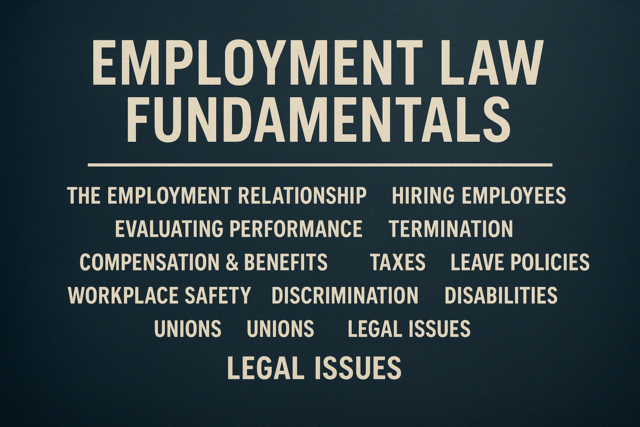Some people use coping mechanisms to deal with things in their lives that bother them. One such coping mechanism for anger is passive-aggressive behavior. This article explains what passive-aggressive behavior is and why it is not a healthy way to handle anger.
What is Passive-Aggressive Behavior?
How to Recognize Passive-Aggressive Behavior
One of the easiest ways to recognize passive-aggressive behavior is to recognize what is best described as a pattern of obstruction. Often, passive-aggressive people will seem like they are more than willing to help out, do favors, or complete projects � but then, when it comes to actually doing the project, they do whatever was requested of them in a way that is not useful or helpful. For example, if you are passive-aggressive and you are very angry with your boss, you may find yourself showing up late for meetings or doing less than your best work on a project (or even calling in sick at key times) as a way to deliver your message of anger. Unfortunately, you hurt yourself and your co-workers as much as you hurt your boss, and you do not solve the problem because your boss won't even realize you are angry � he or she will just think you have poor performance and you'll be passed over for the promotion or raise.
- You procrastinate instead of completing things in a timely manner (at work or at home).
- You are perpetually late or running late for meetings or other engagements.
- You have a tendency to be sarcastic and flippant in conversations; you appreciate irony and sarcasm.
- You are the "grin and bear it," "grit your teeth," get it done kind of person with a fake smile on your face.
- You frequently sigh.
- People don't know how you feel � they see a smile regardless of what emotion you're experiencing.
- You control your voice and keep emotions out of it.
- You suffer from nightmares.
- You have more than an occasional sleepless night or suffer from insomnia.
- You are bored or apathetic about your life.
- You experience tiredness to the point of exhaustion.
- You are irritable even when it's over small matters.
- You are sleeping more than usual but still feel tired.
- You grind your teeth or clench your jaws, especially at night.
- You have tension in your back, neck, and shoulders.
- You suffer from depression or have a great deal of unexplained sadness.
- You suffer from indigestion or stomach ulcers.
Checklist for Aggressive Anger
- Making threats or telling people you will harm them or kill them
- Making gestures like flipping people off or shaking your fist
- Honking repeatedly in traffic
- Tailgating and other "road rage" patterns
- Slamming doors
- Telling offensive jokes
- Breaking promises or purposely embarrassing someone
- Using foul language
- Hitting
- Yelling at people
- Throwing or breaking things
- Hurting animals
- Recklessly driving
- Abusing alcohol or drugs
- Pushing or shoving
- Blaming others for your mistakes
- Speaking too quickly
- Spitting when speaking
- Intimidating people
- Running someone off the road with your car
- Preying on people's weaknesses
Changing Your Patterns of Passive-Aggressive Behavior
There are several things you can do in order to change your unhealthy patterns of passive-aggressive behavior:
- Recognize when you feel angry and allow yourself to be honest about your anger.
- Be assertive and open about your feelings.Tell people when they have made you angry.
- Warn people that you tend to behave this way so that they are able to watch your body language for signs that what you say and what you feel are different; ask them to clarify when they see the difference in message.
- Recognize for yourself when you are behaving in a way that is inconsistent with how you are feeling and try to stop the behavior.
- Tell yourself that it is ok to have disagreements, to say no, and to tell others when they make you angry.
- Learn to compromise. It's not black and white; it's not always his way or your way. Try to find comfortable middle ground from which you can comfortably express yourself.
Stress
The relationship between anger and stress is very strong. Stress can make a person react much more violently to a set of circumstances that they would otherwise have had little or no reaction to. This section will explore what stress is, and the kinds of health concerns it brings, as well as teach you how to de-stress.
What is Stress?
Stress is an emotional (and sometimes physical) reaction to the pressures of life. Whenever we feel like we cannot accomplish what we need to � be it a lack of time, money, or skill � we feel stress. Stress can be a good thing � it keeps us motivated and gives us bursts of energy when we need them. However, too much stress, and chronic stress, can be very bad for our health and our ability to manage our anger reactions effectively.
There are certain major life events that can overload your stress: changing or losing jobs, experiencing a death in the family, moving or relocating, having a baby, and getting married. When you experience one or more of these events, your stress levels can be extremely high, ultimately making it difficult to manage both your level of stress and your anger reactions.
The mental symptoms of stress include: tension, irritability, lack of concentration, sleeplessness, and being tired or depressed. Your body can have physical symptoms of stress as well, including: indigestion, heartburn, heart palpitations, sweating, tense and tight muscles, and a dry mouth.
Risks of Stress
Stress stems from the ancient "fight or flight" response humans had in order to stay alive when they were living in caves and fighting saber-toothed tigers. While stress can be occasionally useful in today's society, it mostly has negative effects. Stress has been linked to increased risk of stroke and heart attack, increases in belly fat (from the hormones released with chronic stress that cause the body to layer fat in the abdominal area), and an inability to concentrate or function properly.
For someone who is already fighting issues of anger management, increased stress will only make that struggle more difficult. Finding ways to alleviate your stress � and the things that are causing your stress � is critical.
There are many things you can do to fight stress, but your best success will be to take a multi-pronged approach.
1- Eliminate your sources of stress . If you are experiencing financial difficulties, seek debt counseling or other solutions. If you have experienced a death or have another emotional stress, actively work through your grief. See a grief counselor. Join a support group.
2- Reduce your mental stress. Find ways to relax: meditate, do yoga, write in a journal, get together with a friend. Focus on positive thinking and picture yourself succeeding.
3- Reduce your physical stress. Take a walk, go for a jog � even do jumping jacks for 10 minutes. Stress levels can be reduced considerably by introducing physical activity into your daily life. Breathing � deep, cleansing breaths � can actually reduce your level of stress and affect your heart rate and blood pressure. Smiling � even fake smiles � release serotonin into your body, which causes a calming, pleasurable feeling.
Summary
Stress is the mental and physical reaction to the daily pressures of life. The relationship between stress and anger is undeniable. There are things you can do to reduce stress both mentally and physically. First, identify and reduce your stress triggers. Second, de-stress mentally with meditation, yoga, and writing in a journal. Third, release the physical tension of stress with exercise, deep breathing, and relaxation exercises.
Anger can be bad, but it can be even worse if your parents, children, or spouse receive the reactions of your anger. More than one marriage has been destroyed by anger. This section will discuss anger with spouses, siblings, parents, and children -- and the common stressors in each of these relationships. We will also discuss the importance of good, open communication.
Sibling anger can arise for many reasons. You may have aging parents to care for and feel that a sibling is not helping out as much as they should. Your anger may stem from old childhood rivalries or jealousies. As with any relationship, it is important to discover the cause of the anger. Is there something you need to forgive your sibling for, so that you can move past the anger? Can you find a way to communicate about your angry feelings in an open and respectful way?
Think about your expectations of your siblings. Are you expecting things of them without communicating with them about what you want or need? Do you assume that they should know how to help, or what to do, without you clearly expressing it? Siblings run the risk of never being able to live up to the expectations of each other because it is so easy to assume that they should already understand.
If you have children and they are exhibiting a lot of symptoms of anger with each other, you, as the parent, have a responsibility to help them. It starts when children are quite little; they fight over toys, they compete for your attention, they are jealous of each other. But siblings do not have to grow up as enemies under the same roof.
In fact, some sibling rivalry is normal and healthy , but if it is making it difficult for your family to function and interfering with daily life, then it must be handled. To help your children, talk to them about the fact that it's normal to sometimes feel jealous of their sibling, or frustrated with them. Teach them to express their feelings and to feel comfortable doing so.
Most likely, a child suffering from sibling rivalry will be angry. Children don't know how to cope with their anger emotions without guidance from their parents. The biggest thing you can do is to teach your child that they can choose how they behave when they are angry. Help them learn not to lash out or react to their emotions without first pausing to think about why they are angry. Help them be empathetic to their sibling. Demand courtesy and respect between your children. Do not allow them to call names, hit, or be mean to each other. Teach your children that words like "hate" are bad, but that it's ok to say, "I am angry and this is why." The habits you teach your children now will follow them into adulthood.
Parents & Children
There is probably never more anger in a home than when you have a hot-headed, ready-to-be independent teenager in the house who would rather scream, "I hate you!" than listen to reason. It can make life very stressful. Anger is not reserved for teens, though. There are the terrible twos, threes, fours� What is critical with kids is to make sure they feel safe talking to you. If they think you are going to blow up at everything they say, they may grow angry and resentful and withdraw. It is important that even at a young age children are taught how to handle anger. Empathize with your child when they feel angry and teach them how to react appropriately to things that happen. Help them redirect their anger to positive things.
Anger between spouses can be poison to a family. Studies show that an unhappy marriage leads to depression and can actually affect the long-term health of each spouse. Passive-aggressive tendencies are also more likely within angry marriages. One of the worst problems of angry marriages, when the anger is not properly diffused, is that children pick up on your poor anger management skills and incorporate them into their own personalities.
Every couple has occasional problems during the course of their marriage. Arguing is inevitable in marriage, but it is not necessarily a healthy thing. More importantly is how you communicate � during arguments and otherwise. There are certain behaviors that are considered extremely damaging:
- criticizing your spouse
- refusing to discuss issues
- being defensive
- disrespect or contempt for the other person
Not only do these behaviors damage the relationship, but they lead to even worse problems, because those behaviors erode the trust between the two partners and increase anger, frustration, and stress. Sometimes, the way we behave with our spouse feels natural because it's the way we saw our parents behave with each other, but it is important to avoid behaving in ways that will damage your relationship or even, in some cases, destroy it.
There are certain behaviors you should avoid:
- Calling your partner names
- Criticizing your partner's feelings and opinions
- Being insensitive
- Refusing to talk about issues
- Accusing your partner of things
- Not letting go of old issues once resolved
- Not being willing to communicate when you've been hurt or angered
- Expecting your partner to know how you feel without you telling him or her
WARNING: If you are intimidating your partner, becoming physically violent with them, isolating them from family or friends, assaulting them, or withholding money from them�or if you are the victim of this kind of behavior, please, get help now. Contact a counseling professional, a shelter, or another agency in your area that can help.
Summary
The people we love the most are often also the ones who anger us the most. We can have angry feelings toward parents, children, siblings, and spouses. Open communication is the most important way to handle anger in your closest relationships. Particularly if you have children, how you handle anger now is how you are teaching them to handle it later.
























